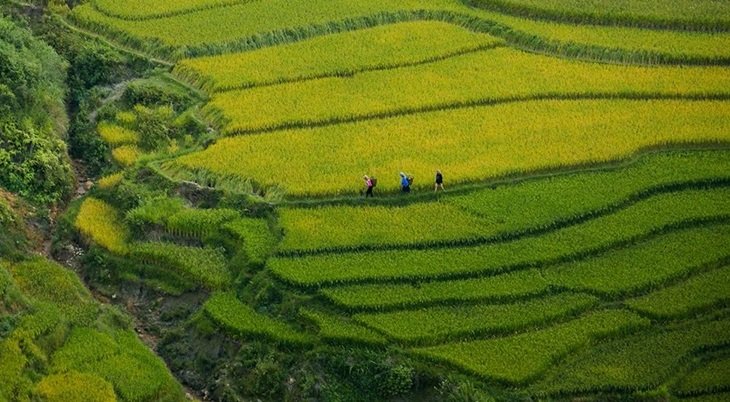Thursday, 19 February 2026

The new hub will enable and scale carbon market access in Vietnam and extends the intended impacts of this partnership to other countries that are operating in similar environments.
Gold Standard and the International Rice Research Institute (IRRI) have released a new resource hub designed to encourage and support the development of sustainable rice production activities in Vietnam, by simplifying rice producers’ access to new income streams from carbon finance.
In 2022, Gold Standard entered into a partnership with IRRI and the Australian Department of Foreign Affairs and Trade (DFAT) through the Business Partnerships Platform (BPP) with the aim of scaling carbon market access for sustainable rice producers in Vietnam. The Rice Sustainability Hub developed through the partnership is the first of its kind for the rice sector in Vietnam, and the resources and tools provided will help sustainable rice project developers across the world.
Margaret Kim, CEO of Gold Standard, said, “In launching the Rice Sustainability Hub, we hope to facilitate not just a significant reduction in methane emissions — a potent greenhouse gas – but also to open new opportunities for income for smallholder farmers, moving us closer to our dual goals of environmental sustainability and economic resilience.”
IRRI Climate Change Specialist, Dr. Katie Nelson said, “This new resource hub takes us a step closer to enabling and scaling carbon market access in Vietnam and extends the intended impacts of this partnership to other countries that are operating in similar environments.”
Rice production is a significant source of greenhouse gas emissions, contributing to around 8% of global agricultural emissions. Rice is the world’s most important staple food crop, helping to feed over four billion people and providing a livelihood for about 150 million smallholder farmers. Moving towards sustainable production practices will have a positive impact on the climate and on the livelihoods of millions of farmers.
As the third largest exporter of rice in the world, rice production is a major source of greenhouse gas emissions in Vietnam. The Government of Vietnam has pledged to reduce methane emissions by 30 per cent by 2030 and transitioning to sustainable rice production practices will be important to meet this objective.
Sustainable rice farming can only be achieved by working closely with farmers, by giving them access to information, training, and financial support. Carbon finance offers one route to support these activities. The Rice Sustainability Hub is designed to provide the resources and tools project developers and other stakeholders need to effectively support the development of sustainable rice projects under the Gold Standard “Methane Emission Reduction by Adjusted Water Management Practice in Rice Cultivation” methodology.
While the hub aims to promote project activities in Vietnam, most of the resources and tools are also relevant for sustainable rice projects located in other countries.